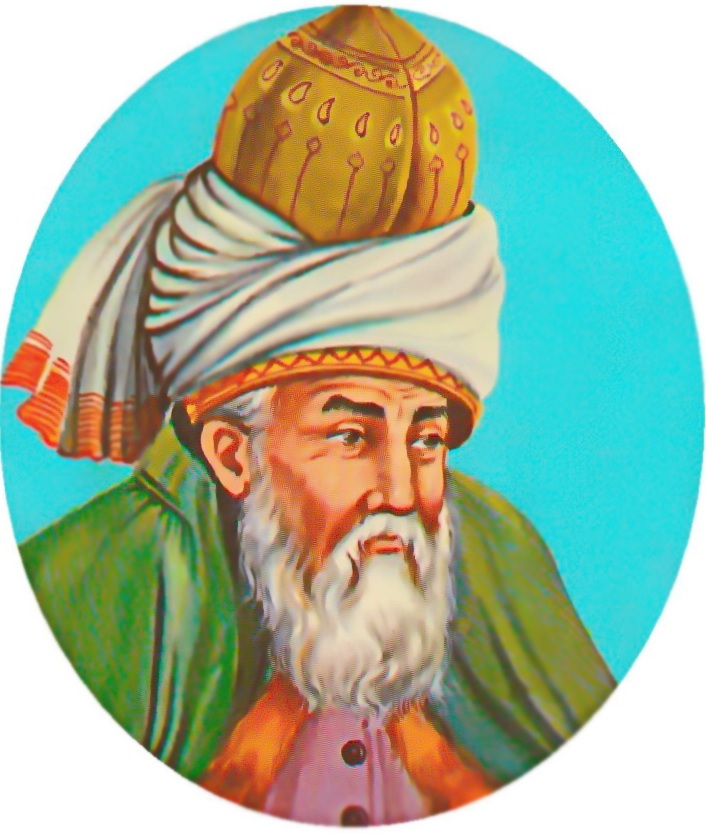Hi, Our last post on Rumi’s life has been appreciated by many so thought to explore more about Rumi’s Life so read a book Rumi: A Spiritual Biography and analyzed the key events which changed his life. with poetry wraps us in a warm embrace, speaking of love, longing, and the divine. But behind those soul-stirring words lies a life full of dramatic, heart-wrenching moments that transformed Jalaluddin Rumi from a 13th-century scholar into the mystic poet we cherish. Let’s dive deeper into the five key events that reshaped his path, giving us the timeless wisdom we find in his verses.

Fleeing Home as a Child
Around 1219, when Rumi was just 12, his family fled their hometown of Balkh (modern-day Afghanistan) to escape the Mongol invasions led by Genghis Khan. Imagine a young boy, surrounded by the chaos of war, leaving behind his home, friends, and sense of safety. The Mongols were destroying cities, and Rumi’s father, a respected scholar, decided to lead the family on a perilous journey westward. They traveled through bustling centers like Baghdad, performed pilgrimage in Mecca, and passed through Damascus before finally settling in Konya, in modern-day Turkey, under the Seljuk Sultanate. This years-long trek wasn’t just a physical journey—it left deep emotional scars. The loss of his homeland became a recurring theme in Rumi’s poetry, where he often describes the soul as a wanderer seeking its true “home” in God. This early trauma gave his words a universal ache that resonates with anyone who’s ever felt displaced or lost.
Losing His Soulmate, Shams
IAnd in 1244, when Rumi was in his late 30s, he encountered Shams of Tabriz, a wandering dervish who infused the older man’s spirit with an intoxicating intensity and otherworldly wisdom that turned Rumi’s world inside out. Shams was unlike any of the scholars Rumi previously knew — he pressed Rumi to look beyond books and rituals, igniting a profound friendship that felt almost mystical, like a connection with God. They would spend hours in intense spiritual discussions — sometimes withdrawing for days into what the Sufis call “sobhet” (soul-to-soul communion). But this relationship aroused jealousy among Rumi’s students and kin, who believed Shams was taking their teacher. About 1247 Shams disappeared without a trace. Many suspect he was murdered, perhaps by Rumi’s own son, Alaeddin, or by jealous disciples who could not bear Shams’ influence. Shattered, Rumi wandered as far away as Damascus in pursuit of his friend — before realizing Shams was alive there in the poet’s heart. This grief became the impetus behind thousands of his ghazals, in which Shams became a metaphor for divine love — elemental, fervent and infinite. It was in the pain of this loss that Rumi’s poetry found its gut-wrenching compass, a wound from which the body never completely recovers.
Facing Pushback from Religious Leaders
As a Sufi, Rumi’s ecstatic practices—like whirling dances and poetry about dissolving into God’s love—didn’t always sit well with the strict religious leaders of Konya, then the capital of the Seljuk Sultanate. Rumi was a respected Sunni scholar, trained in Islamic law, but his focus on mystical experiences over rigid rules raised eyebrows. Some orthodox Hanafi jurists whispered that his ideas bordered on heresy, accusing him of pantheism (blurring God and creation) or mixing Christian and Jewish elements into his teachings. For example, his epic Masnavi weaves stories from the Quran with parables from other traditions, which some saw as straying from “pure” Islam. Living in a politically charged city, Rumi had to be careful—his ties to the Seljuk court helped shield him, but the tension was real. This pushback forced him to refine his message, balancing his free-spirited mysticism with his public role as a preacher. It’s why his poetry feels so universal yet grounded, speaking to the heart while navigating a world of rules.
Losing His First Wife
In his early 20s, Rumi married Gowhar Khatun, a woman from Samarqand who became his partner in a new life in Konya. They had children together, including Rumi’s sons, Sultan Walad and Alaeddin. But tragedy struck when Gowhar died, likely in the 1230s, while still young. This loss left Rumi a widower with young kids, carrying the weight of family responsibilities alongside his role as a religious teacher. Gowhar’s death was a quiet but profound blow—unlike the dramatic loss of Shams, this was a personal, intimate grief. It deepened Rumi’s reflections on love’s fragility, which you can feel in his poems about fleeting moments and the soul’s search for eternal connection. Her passing pushed him further into his spiritual journey, as he sought meaning beyond earthly ties. Later, Rumi remarried, but Gowhar’s early death left a lasting imprint on his heart and words.
His Father’s Death and New Responsibilities
In 1231, when Rumi was about 24 years old, his father Bahauddin Walad died in Konya. Bahauddin was a big deal — a famous theologian and preacher whose followers considered him a spiritual giant. That death catapulted Rumi to stardom: He inherited his father’s job as a religious leader in Konya’s scholarly community. It wasn’t easy going: Rumi needed to teach, pray and maintain his father’s legacy as an authority at a very young age and while he was still in search of his authentic voice. At first, he was heavily dependent on traditional training in Islamic studies, including tutelage by one of his father’s students, Burhanuddin, and displacement to Aleppo and Damascus for continued instruction. But this early responsibility paved the way for his eventual transformation. Overwhelmed by his father comparable ending, Rumi began to challenge the rigid dogma that had defined him, opening himself to Sufism and poetry upon meeting Shams. But the moment was a planted seed — Rumi’s public role gave him stability, but it sparked something else: a hunger for deeper, more personal truth.
These five events—fleeing war, losing loved ones, and navigating conflict—molded Rumi into the poet whose words still touch us today. Each one added layers to his wisdom, blending pain and beauty into verses that feel like they were written just for us. So, next time you read Rumi on Science and Yoga, picture the man behind the poetry—a human who turned life’s struggles into a timeless song of the soul.

